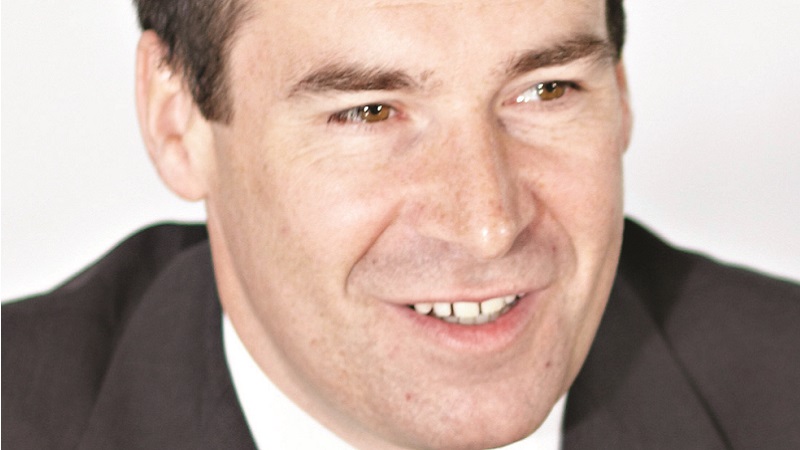High-profile fund manager departures in recent weeks have driven fund selectors to strip funds from buylists and portfolios or put them on watch, but is it wise to take such a rash step as soon as a manager is out the door?
At the end of last month, a raft of fixed income managers left Kames Capital, including the highly-respected co-head of fixed income, Stephen Snowden (pictured), as well as high yield managers David Ennett, Stephen Baines and Juan Valenzuela.
Around the same time, it emerged that Neptune’s Rob Burnett, manager of the European Opportunities fund, will be exiting the firm after 16 years to set up his own business. Latam manager Thomas Smith is set to take over the £330m fund at the end of the year.
The sudden departure of the Kames team, which has since landed at Artemis, came as a heavy blow to a firm arguably still reeling after losing previous co-heads of fixed income Phil Milburn and Dave Roberts to Liontrust early this year.
Morningstar was prompted to place seven Kames bond funds under review, while Square Mile removed its rating on Snowden’s funds. Elsewhere, Fundcalibre removed the Kames Investment Grade Bond fund, run by Snowden, from its buy-list.
AJ Bell said it removed Kames’ fixed income products from its favoured funds list when Roberts and Milburn exited in August 2017, although Portfolio Adviser understands fees could have also played a part in the decision.
Cut through the noise and take your time
Portfolio Adviser spoke with several fund selectors who said the decision over whether to stick or twist when a fund manager or team leaves involves many moving parts and essentially comes down to horses for courses.
Wellian Investment Solutions investment director Chris Mayo was quick to address the theme of manager departures in the firm’s weekly blog. He believes all the media noise following big manager moves can mean that important factors such as the investment process and management team are overlooked.
“Therefore, our advice has always been to avoid getting caught up in the hype and rushing into any hasty decisions about whether to keep money in the fund or not,” he wrote.
Speaking to Portfolio Adviser, Mayo adds: “Generally, waiting a few weeks isn’t going to make a difference to performance as the existing positions are still there and you’ve bought it for that reason, so there is not going to be a drastic wholesale change after a departure.”
Mayo references Wes McCoy replacing Ed Legget on the Standard Life Investments (SLI) UK Equity Unconstrained fund in December 2015 as an example of when there was no real change to the fund’s process or performance because McCoy had been an important part of the team previously. Legget joined Artemis where he now runs the Artemis UK Select fund.
Investors who followed Legget would have done marginally better than those who stuck with McCoy. Since the end of December 2015 until 7 December this year, the Artemis UK Select fund has returned -0.06% in sterling terms versus the SLI UK Equity Unconstrained fund’s -3.64%, according to FE data. Both funds, however, fall way short of the IA UK All Companies sector which has returned 13.6% over the period.
The most important thing to consider, Mayo adds, is blending different styles of funds and managers together. “If things do change, we have other funds doing different things in the portfolios,” he says.
Star manager or team approach
Another factor to consider is whether funds are run by a single star manager or a team, says John Monaghan, research manager at Square Mile.
Square Mile’s approach is to suspend a fund’s rating as soon as there is a manager departure. This gives the team “thinking time” to visit the new manager/team and decide whether it should be rated again, says Monaghan.
A recent example of this was when Fidelity’s Ian Spreadbury announced he will retire from fund management at the end of this year, at which point he will hand over his MoneyBuilder Income fund to co-manager Sajiv Vaid.
“We have met Sajiv a few times,” says Monaghan. “We suspended the rating, went in to see the guys and will see how they are going to position the fund, then we will reconsider based on that.”
Fund suspensions can last anything from a few weeks to six months, even longer, he says. If a manager is integral to the fund, Square Mile removes the fund from its buylist straightaway.
For example, Monaghan says Square Mile removed its rating on the Threadneedle UK fund when Chris Kinder took over from Simon Brazier who, along with his team, left for Investec Asset Management in November 2014.
“We hadn’t come across Chris at the time and he hadn’t really run money for the same mandate,” says Monaghan. “He had experience of running a more concentrated and a long/short fund.”
According to FE data, there is a fractional difference in the two funds’ performance since Brazier moved on. From 31 December 2014 until 7 December 2018, Brazier’s Investec UK Alpha fund has returned 19.42% in sterling terms, versus Kinder’s Threadneedle UK fund’s 19.48%. The IA UK All Companies sector has returned 19.13% over the same period.
It makes very little difference to performance
Research from Morningstar conducted last year, looking at the US actively managed equity and fixed income space, found no relationship between any type of management changes and future returns over the following month and for the ensuing three years.
The report, The Aftermath of Fund Management Change, noted: “Furthermore, this holds true for all different types of management changes. Gross excess performance does not depend on the fund’s alpha, size, or industry experience at the time of management change.”
| The average effect of management change on gross excess returns | |||||
| Months | 36 | 12 | 6 | 3 | 1 |
| Management change 3 months | -0.001 | 0.001 | 0 | 0 | 0.008 |
| Management change 6 months | 0.001 | 0.001 | 0 | 0 | 0.004 |
| Management change 12 months | -0.001 | 0.001 | 0 | 0 | -0.002 |
| Management change 24 months | 0.007 | 0.002 | 0.001 | 0.001 | 0.019 |
Source: Morningstar Inc, data as of 31 Dec, 2016 |
|||||
Morningstar director of ratings and manager research, North America, Russ Kinnel told Portfolio Adviser managers moving on is an important consideration but there is a bigger picture, including fees, culture and strategy at play.
In terms of culture, Kinnel notes the shock departure of Bill Gross from Pimco in September 2014 which caused the Total Return fund to lose about $180bn in assets between mid-2013 and May 2015. Kinnel says the departure was actually a blessing because Gross had become a “rather dysfunctional leader”. Morningstar lowered its rating of the fund to bronze at the time but it is back to gold because of the strength of the new team.
“A great manager in Bill Gross leaves and three great managers came in and we had a lot of confidence in them individually,” he says. “Since then, you have seen manager and analyst departures at Pimco really decline because Bill Gross is not there, so people came back.”











